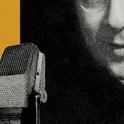A beacon for the future of journalism, or is The Gray Lady making a big mistake?
Earlier today, the New York Times made the long-awaited announcement that it is launching digital subscriptions for its online site. If you want to read more than 20 articles a month, you’ll need to dig in your pockets for $15 every four weeks (this will cover NYTimes.com and the Smartphone App). The changes take effect soon—first in Canada, and from 28th March, in the US and the rest of the world.
New York Times executives have been mulling over the decision for months. They are, finally and in a slightly different form, boldly going where Rupert Murdoch went last year when he made the London Times a subscription-only site. In the press release, the Times’s chairman, Arthur Sulzberger, Jr., stated: “This move will enhance the Times’s position as a source of trustworthy news, information and high-quality opinion for many years to come.”
These developments will be watched with interest by Emily Bell, former director of digital content at the Guardian and current head of the Tow Center for Digital Journalism at Columbia University. Bell, with whom I spoke earlier this year, guessed that the paywall would be “as robust as the Great Wall of China but as leaky or as holey as a piece of Swiss cheese.”
Bell came to Columbia last July after almost 20 years at the Guardian, where she had played a significant role in increasing the publication’s online readership to an impressive 1.8 million per day. “When you get to 45, you do tend to think, ‘What next?’” she said of the move, which surprised some of her friends at the time. But a range of motivations were at play: an impulse to experience New York’s media world; a wish to think about journalism in a long-term, strategic way; and a personal desire to take a risk.
She arrives in New York just as the city’s media institutions are experiencing change at a giddying rate. “It will be fantastically interesting to see whether they pull it off as a technology project,” she suggested on the experiment at the Times. “My instinct is that they will never make as much money out of it as they’ve had to invest in it, and you will never know what else you could have made money out of.”
The office that she inhabits at Columbia is tiny and white, with bare shelves and a nondescript, greenish-grey carpet. It’s somewhat bleak and empty looking, hidden just off a grander corridor that is decorated by portraits of Columbia J-School deans. The Tow Center for Digital Journalism, for which she joined the university to both develop and lead, sounds so glamorous. In reality, it is still embryonic. “You know what it’s like in cyberspace—you don’t have to have magnificent physical surroundings,” she said, laughing. The Center’s start-up status was one of the things that attracted her to the job.
Bell sympathizes with a need within the news industry (what she calls “a deep psychological need”) to believe in a sustainable stream of revenue from digital that is not tied to advertising, and, amongst journalists, that their work is good enough for readers to pay for it. But she has always been against the paywall model. “When I was at the Guardian, I think my views, certainly internally, were extremely well known—maybe to my own detriment.” Her opponents may point to the success of subscription-based models at the Wall Street Journal and the Financial Times, but she says that they don’t count because they are specialist publications, with monopolies in their own markets. And their core readership has money.
For her there is also an ideological reason to offer news online for free: access to information is a feature of democratic societies. “I feel that it’s important for people to have a proper analysis and robust reporting of issues which directly affect them and affects how they will vote,” she argued. “I know I am probably alone in this… But if one imagines a world where all news and high quality journalism had to be paid for directly at the point of consumption, I think that’s quite a problematic world as well.”
“I do worry that there is a crisis in journalism,” Bell continues. “People do need to be paid.” But she maintains that the focus within journalism should be to innovate. “The relevance of journalism to a world which is so much changed in a technological age is important. It doesn’t matter what your business model is, you can’t hang it from something which is irrelevant, or which is not reaching an audience and is not resonating with an audience. I think you have to tackle that part of it first.”
Still, the internet has been around for some time now. Why have so few publications succeeded in discovering a sustainable source of income from it? To my surprise, she replies, “I think there probably isn’t one for now, actually,” and then corrects herself. “I think there are two reasons: a) There might not be one and b) they’ve all been looking slightly in the wrong direction.”
Bell pointed out that the internet has in fact made many people rich, just not newspaper publishers. “How many news organisations have somebody at the top who really understands what’s happening with web technology? It’s inconceivable that you would have somebody at the top of a news organisation who didn’t know what the distribution issues were at their newspaper, didn’t understand the sales figures.” The Guardian’s Alan Rusbridger did understand that change was coming. “I was very lucky,” she states. “But it’s long and fairly punishing work to persuade other people in your organization that that’s going to happen, particularly when the future they’re going towards has much less money attached to it, far fewer people, an uncertain output—an uncertain future.”
There is, she says, “a generation of technologically aware people who feel they know more about information-gathering and dissemination than people in news boardrooms, and who feel they want more accountability.” This disaffection is one of the factors that created WikiLeaks, which she was clearly excited about. “It’s been a moment at which everybody has had to realise how much journalism has been changing.” And, with Amazon switching off the group’s server capacity, “You have to start asking different questions about how you create and support a free press in this world where there are so many more stake-holders.”
The move to academia will allow Bell to contemplate these questions; yet her new career will be very different from her old one, and I wonder if she will miss the faster pace (“No!” was her emphatic response). I asked what she sees as her main achievement at the Guardian. “Much of it was not my achievement, it was really a team,” Bell clarified, modestly. But, she admitted, “I think that an achievement was ideologically and journalistically embedding the idea that facing the open web would actually produce high quality journalism.”
As for the fate of the New York Times—we’ll have to wait and see.
Earlier today, the New York Times made the long-awaited announcement that it is launching digital subscriptions for its online site. If you want to read more than 20 articles a month, you’ll need to dig in your pockets for $15 every four weeks (this will cover NYTimes.com and the Smartphone App). The changes take effect soon—first in Canada, and from 28th March, in the US and the rest of the world.
New York Times executives have been mulling over the decision for months. They are, finally and in a slightly different form, boldly going where Rupert Murdoch went last year when he made the London Times a subscription-only site. In the press release, the Times’s chairman, Arthur Sulzberger, Jr., stated: “This move will enhance the Times’s position as a source of trustworthy news, information and high-quality opinion for many years to come.”
These developments will be watched with interest by Emily Bell, former director of digital content at the Guardian and current head of the Tow Center for Digital Journalism at Columbia University. Bell, with whom I spoke earlier this year, guessed that the paywall would be “as robust as the Great Wall of China but as leaky or as holey as a piece of Swiss cheese.”
Bell came to Columbia last July after almost 20 years at the Guardian, where she had played a significant role in increasing the publication’s online readership to an impressive 1.8 million per day. “When you get to 45, you do tend to think, ‘What next?’” she said of the move, which surprised some of her friends at the time. But a range of motivations were at play: an impulse to experience New York’s media world; a wish to think about journalism in a long-term, strategic way; and a personal desire to take a risk.
She arrives in New York just as the city’s media institutions are experiencing change at a giddying rate. “It will be fantastically interesting to see whether they pull it off as a technology project,” she suggested on the experiment at the Times. “My instinct is that they will never make as much money out of it as they’ve had to invest in it, and you will never know what else you could have made money out of.”
The office that she inhabits at Columbia is tiny and white, with bare shelves and a nondescript, greenish-grey carpet. It’s somewhat bleak and empty looking, hidden just off a grander corridor that is decorated by portraits of Columbia J-School deans. The Tow Center for Digital Journalism, for which she joined the university to both develop and lead, sounds so glamorous. In reality, it is still embryonic. “You know what it’s like in cyberspace—you don’t have to have magnificent physical surroundings,” she said, laughing. The Center’s start-up status was one of the things that attracted her to the job.
Bell sympathizes with a need within the news industry (what she calls “a deep psychological need”) to believe in a sustainable stream of revenue from digital that is not tied to advertising, and, amongst journalists, that their work is good enough for readers to pay for it. But she has always been against the paywall model. “When I was at the Guardian, I think my views, certainly internally, were extremely well known—maybe to my own detriment.” Her opponents may point to the success of subscription-based models at the Wall Street Journal and the Financial Times, but she says that they don’t count because they are specialist publications, with monopolies in their own markets. And their core readership has money.
For her there is also an ideological reason to offer news online for free: access to information is a feature of democratic societies. “I feel that it’s important for people to have a proper analysis and robust reporting of issues which directly affect them and affects how they will vote,” she argued. “I know I am probably alone in this… But if one imagines a world where all news and high quality journalism had to be paid for directly at the point of consumption, I think that’s quite a problematic world as well.”
“I do worry that there is a crisis in journalism,” Bell continues. “People do need to be paid.” But she maintains that the focus within journalism should be to innovate. “The relevance of journalism to a world which is so much changed in a technological age is important. It doesn’t matter what your business model is, you can’t hang it from something which is irrelevant, or which is not reaching an audience and is not resonating with an audience. I think you have to tackle that part of it first.”
Still, the internet has been around for some time now. Why have so few publications succeeded in discovering a sustainable source of income from it? To my surprise, she replies, “I think there probably isn’t one for now, actually,” and then corrects herself. “I think there are two reasons: a) There might not be one and b) they’ve all been looking slightly in the wrong direction.”
Bell pointed out that the internet has in fact made many people rich, just not newspaper publishers. “How many news organisations have somebody at the top who really understands what’s happening with web technology? It’s inconceivable that you would have somebody at the top of a news organisation who didn’t know what the distribution issues were at their newspaper, didn’t understand the sales figures.” The Guardian’s Alan Rusbridger did understand that change was coming. “I was very lucky,” she states. “But it’s long and fairly punishing work to persuade other people in your organization that that’s going to happen, particularly when the future they’re going towards has much less money attached to it, far fewer people, an uncertain output—an uncertain future.”
There is, she says, “a generation of technologically aware people who feel they know more about information-gathering and dissemination than people in news boardrooms, and who feel they want more accountability.” This disaffection is one of the factors that created WikiLeaks, which she was clearly excited about. “It’s been a moment at which everybody has had to realise how much journalism has been changing.” And, with Amazon switching off the group’s server capacity, “You have to start asking different questions about how you create and support a free press in this world where there are so many more stake-holders.”
The move to academia will allow Bell to contemplate these questions; yet her new career will be very different from her old one, and I wonder if she will miss the faster pace (“No!” was her emphatic response). I asked what she sees as her main achievement at the Guardian. “Much of it was not my achievement, it was really a team,” Bell clarified, modestly. But, she admitted, “I think that an achievement was ideologically and journalistically embedding the idea that facing the open web would actually produce high quality journalism.”
As for the fate of the New York Times—we’ll have to wait and see.











